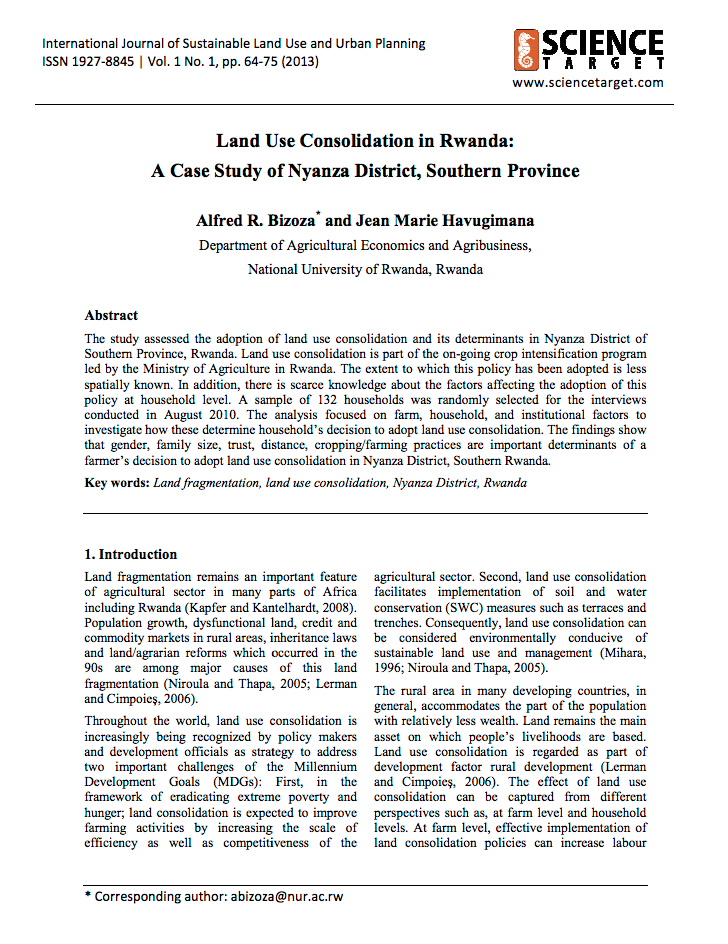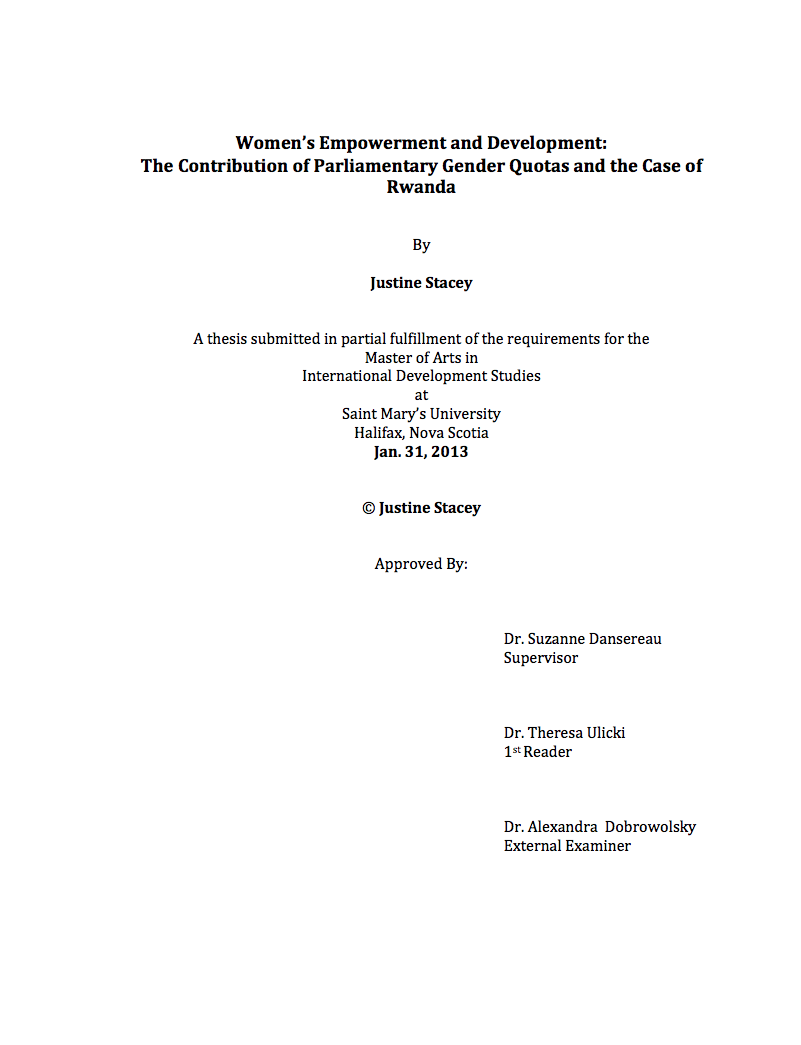The LAND Project is a five year program supported by the United States Agency for International Development (USAID). Its primary goal is strengthening the resilience of Rwandan citizens, communities and institutions and their ability to adapt to land-related economic, environmental and social changes.
Resilience is defined as “the ability to withstand or recover from difficult conditions.” It also comprises the ability of human and ecological systems to recover from shocks or difficult changes, and to transform to a better condition by responding flexibly and creatively to stress factors. In Rwanda, land tends to be one of the primary assets citizens rely on to buffer against difficult conditions and rapid change.
The project’s central objectives are twofold:
1.Increased capacity of local Rwandan institutions to generate high quality, evidence-based research on land-related issues that can be used by the Government, civil society organizations, and Rwandan citizens.
2. Increased understanding of land laws, policies, regulations, and legal judgments on land-related issues by GOR officials, local civil society organizations, research institutes and citizens.
Key outcomes of the project include:
- Holding annual National Land Research Agenda workshops to establish the research priorities of land sector stakeholders that the LAND Project will support. These workshops bring together multiple stakeholders from government, civil society and the research community;
- Supporting research on land-related issues through competitive awards to Rwandan research institutions, universities, and civil society organizations, and providing tailored capacity building assistance to improve research and advocacy capabilities;
- Offering training and other support to legal assistance providers to enhance their capacity to support women and vulnerable populations in understanding and realizing their land rights;
- Training local land authorities on the implementation of the land law and regulations.
- Carrying out research on critical land issues, including gendered land rights in practice, community rights to resources in and around protected areas, and expropriation.
- Managing a land-focused website to improve research, communications, and policy advocacy efforts that are focused on land, and to act as a vehicle for enhancing collaboration between actors working in the land sector;
- Providing organizational development support to civil society organizations supporting women’s land rights.
- Supporting innovative and coordinated communications approaches by civil society and government that enhance the knowledge of Rwandan citizens about research findings and their land rights.
Because the LAND Project is a five year endeavor, we are seeking an institution that has the interest, capacity, skills and resources to eventually take over hosting and maintenance of the website, ensuring it stays up-to-date and relevant to the land sector stakeholder community. If your organization is potentially interested in assuming management of this site, please contact us and tell us why you believe your institution would be an ideal candidate.
Members:
Resources
Displaying 36 - 40 of 149Farmers’ soil knowledge for effective participatory integrated watershed management in Rwanda: Toward soil-specific fertility management and farmers’ judgmental fertilizer use
In the complex soilscape of Rwanda, failure to tailor soil fertility management technologies to specific soil types is the major constraint to their adoption. A study was undertaken to understand how scientists can introduce new soil-related technologies as part of the already functioning farmers’ soil knowledge (FSK) system and achieve soil-specific fertility management interventions. Farmer participatory research and biophysical diagnostic methods were used in Akavuguto watershed, southern Rwanda.
Land Use Consolidation in Rwanda:A Case Study of Nyanza District, Southern Province
The study assessed the adoption of land use consolidation and its determinants in Nyanza District of Southern Province, Rwanda. Land use consolidation is part of the on-going crop intensification program led by the Ministry of Agriculture in Rwanda. The extent to which this policy has been adopted is less spatially known. In addition, there is scarce knowledge about the factors affecting the adoption of this policy at household level. A sample of 132 households was randomly selected for the interviews conducted in August 2010.
Women’s Empowerment and Development: The Contribution of Parliamentary Gender Quotas and the Case of Rwanda
As Parliamentary gender quotas have become increasingly popular, so too
has the debate surrounding their effectiveness in enhancing women’s
representation and gender equality in governments around the world. Women offer
unique and important perspectives to the political process, and thus their increased
political representation and empowerment can advance the very process of
development. In 2003, the Rwandan government Constitutionally enacted a gender
Lay of the Land : Improving Land Governance to Stop Land Grabs
Large-scale land acquisitions by investors, which are often called ‘land grabs’ (see next section for de nition), can deprive rural women and communities of their livelihoods and land, increasing their food insecurity. This report argues that the current rise in land grabbing needs to be urgently addressed, and focuses
on the actions that developing countries can take to mitigate land grabs through strengthening national land governance so that it is transparent, is accountable and protects communities’ rights.
How Land Tenure Regularization Can Contribute to Agricultural Growth in Rwanda
After remarkable social and economic reconstruction since 1994, Rwanda aspires to become a middle income country by 2020 with a strong focus on inclusive growth. In this context the Government of Rwanda (GoR) has recognized the critical nature of land policy and agricultural growth.






